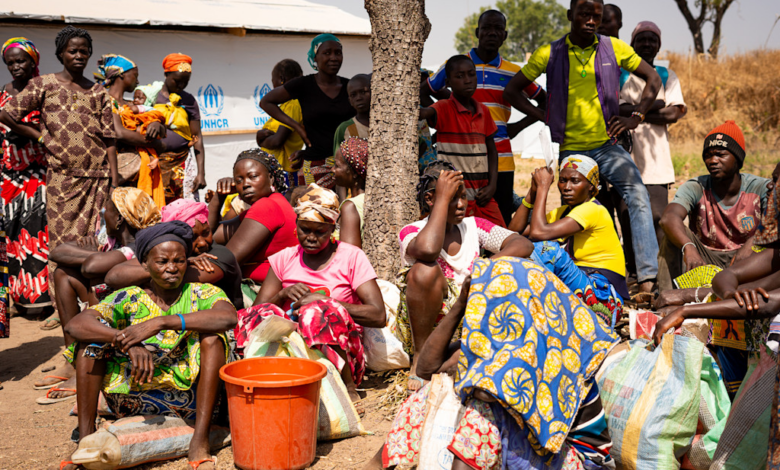Caritas: Tainted Reputation of Global Charity Causes Setback for Refugees in CAR
Following the controversial appointment of a convicted paedophile, international funding organisations such as the United Nations and several other donors suspended their partnerships with Caritas.

Caritas, a global aid organisation in the Central African Republic, is facing a major funding deficit following the suspension of donations by its principal donors over the appointment of a Catholic priest convicted of paedophilia. The withdrawal of donors from Caritas has caused a devastating setback for refugees who are the primary beneficiaries of the global aid charity.
Father Luk Delft, the official who tainted Caritas’ public image, was convicted in 2012 and given an 18-month suspended sentence for sex assaults going back to 2001. He was also banned for 10 years from any role that would bring him into contact with children and young people.
In 2013, however, Delft was deployed to CAR to work with Caritas. After working in Kaga Bandoro, a city in the north of the country for two years, he was appointed the organisation’s national executive secretary in CAR.
Following his controversial appointment, international funding organisations, such as the United Nations and several other donors, suspended their partnerships with Caritas. The UN’s humanitarian agency said there were “serious allegations of abuse against minors” in CAR by Father Luk Delft.
He has since been removed from the post and is no longer in CAR. However, the backlash from his appointment and the suspension of funding has caused devastating setbacks for refugees in the country.
In the Bimbo refugee site on the west of Bangui where victims of flooding are camped, displaced persons are living under precarious conditions. “Caritas helped us during difficult moments. Caritas brought us tents, bedsheets, kitchen utensils and even food. It has been over one month since we have not received material nor financial assistance from them,” Caleb, a displaced person in the Bimbo refugee site, lamented.
Relief materials from Caritas have been completely stopped in some areas and come in drips in others. But Fiacre Sieng, a Caritas spokesperson in the Bangui diocese, defended the cause of the organisation in the country, saying they have continued to “intervene in several domains: in cases of natural catastrophes and if the country is in a conflict situation”.
“Following the last floods (in October 2024) we had previewed assisting at least 1,000 affected persons. But we did not attain this objective because our partners had suspended their partnership with us and we no longer have the finances,” Sieng said.
Alain Bienvenu Bangbanzi, the current national secretary of Caritas in CAR, also said: “Most of our activities have slowed down, salaries are no longer paid and some of our collaborators are tempted to go elsewhere. Some are today stigmatised and the organisation is also the subject of stigmatisation because many people think Caritas has become a structure of sin that should be avoided.”
Caritas, a global aid organization in the Central African Republic (CAR), is facing a severe funding crisis after major donors withdrew support over the appointment of Father Luk Delft, a Catholic priest previously convicted of paedophilia.
Delft’s prior conviction involved a suspended sentence for sexual assaults and restrictions on roles involving minors, but he was still appointed to Caritas’ national executive secretary in CAR.
Following the controversial appointment, international donors, including the United Nations, suspended their partnerships due to allegations of further abuse by Delft in CAR. The funding withdrawal has severely impacted Caritas' ability to provide aid, notably affecting refugee camps like Bimbo, where displaced persons had previously relied on Caritas’ assistance.
Current Caritas officials acknowledge the major setbacks, including halted aid supplies and unpaid salaries. The organization grapples with stigma and resource constraints, making it challenging to address the needs of those affected by natural disasters and conflict situations in CAR.
Support Our Journalism
There are millions of ordinary people affected by conflict in Africa whose stories are missing in the mainstream media. HumAngle is determined to tell those challenging and under-reported stories, hoping that the people impacted by these conflicts will find the safety and security they deserve.
To ensure that we continue to provide public service coverage, we have a small favour to ask you. We want you to be part of our journalistic endeavour by contributing a token to us.
Your donation will further promote a robust, free, and independent media.
Donate HereStay Closer To The Stories That Matter




